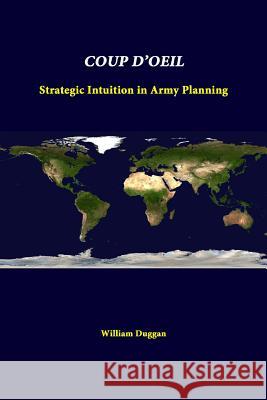Coup D'Oeil: Strategic Intuition In Army Planning » książka
Coup D'Oeil: Strategic Intuition In Army Planning
ISBN-13: 9781312319271 / Angielski / Miękka / 2014 / 66 str.
In our military professions, formal analytical methods co-exist with intuitive decisionmaking by leaders in action. For the most part, there is no harm done. But many officers can recount times when they knew they should have "gone with their gut," but followed instead the results of their analytical methods. The gap between these two forms of decisionmaking perhaps has grown wider in recent times, especially in Iraq, where adaptive leadership seems to have overshadowed formal methods of planning. Departing from formal methods increasingly seems to be the mark of an effective commander, as we learn from Dr. Leonard Wong's recent Strategic Studies Institute (SSI) report, Developing Adaptive Leaders: The Crucible Experience of Operation Iraqi Freedom (July 2004).
In our military professions, formal analytical methods co-exist with intuitive decisionmaking by leaders in action. For the most part, there is no harm done. But many officers can recount times when they knew they should have "gone with their gut," but followed instead the results of their analytical methods. The gap between these two forms of decisionmaking perhaps has grown wider in recent times, especially in Iraq, where adaptive leadership seems to have overshadowed formal methods of planning. Departing from formal methods increasingly seems to be the mark of an effective commander, as we learn from Dr. Leonard Wongs recent Strategic Studies Institute (SSI) report, Developing Adaptive Leaders: The Crucible Experience of Operation Iraqi Freedom (July 2004).











